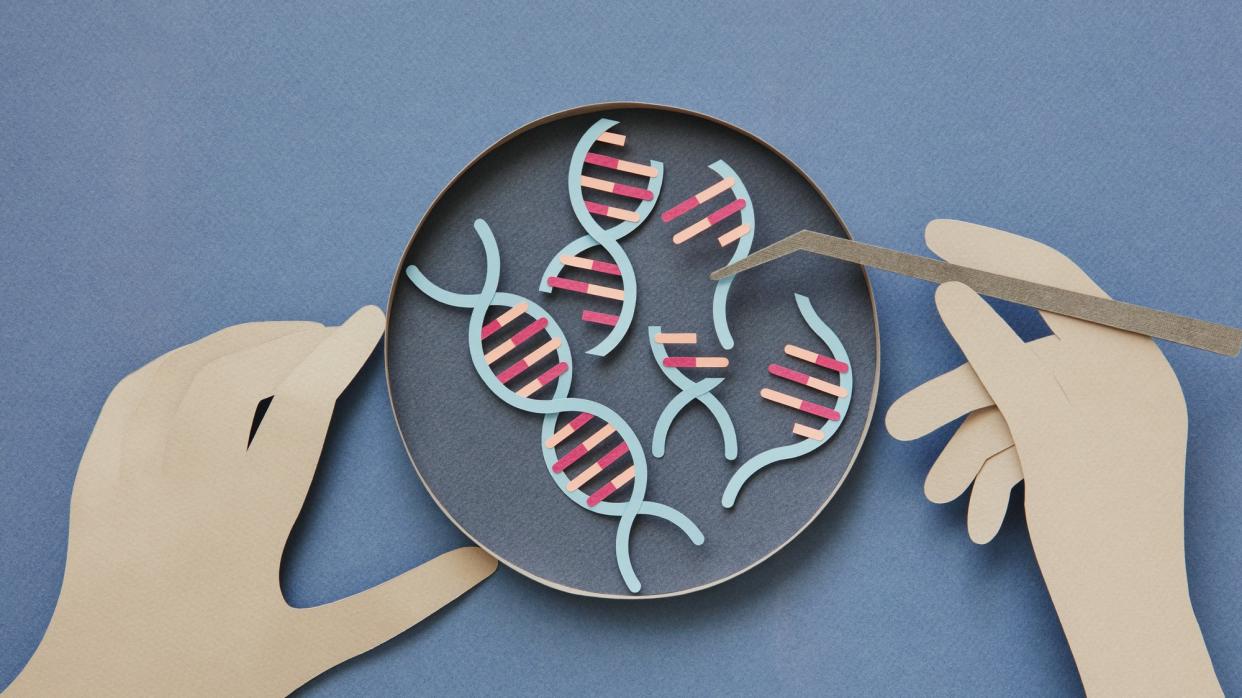The pros and cons of human genetic modification

The rise of gene-edited embryos has raised a myriad of ethical questions. It involves altering DNA to prevent disease or even to choose specific traits using a method known as CRISPR. In 2018, Chinese scientist He Jiankui created the first gene-edited babies, making them resistant to HIV. While the process is controversial, many researchers see the potential in the technology if properly regulated. "Clinical trial results demonstrate that CRISPR is safe, and it’s effective for treating and curing human disease," remarked Jennifer Doudna, who won the Nobel Prize in 2020 for discovering CRISPR. "It’s important with a powerful technology like this to grapple with the challenges of responsible use."
Pro: It could help treat a number of diseases
Turning to genetic modification could be a solution for a number of genetic diseases including sickle cell anemia, muscular dystrophy and cancer. This can be done through modifying human embryos to correct the genetic issue. "There are more than 10,000 single genetic mutations that collectively affect probably hundreds of millions of people around the world," Shoukhrat Mitalipov, a biologist at the Oregon Health and Science University in Portland, told NPR. "We could help a lot of people." Genetic engineering technology can also make crops disease-resistant, seedless or able to bear larger fruit.
Con: It could create greater health divide between developing and developed nations
While the technology has "great potential," it’s also "very expensive," Robin Lovell-Badge of the Francis Crick Institute told The Guardian. "A treatment for one person could cost a million dollars." According to the World Health Organization, there are also "an estimated two billion people have no access to essential medicines, effectively shutting them off from the benefits of advances in modern science and medicine." Equity in medical access has been a long-standing problem. "We have to start talking early on about ways to ... make [gene therapy] cost-effective and sustainable," Alta Charo from the University of Wisconsin at Madison told CNN.
Pro: It could help aging populations
Genetic modification could help populations live longer and healthier, particularly when it comes to combating genetic diseases like Alzheimer’s. An estimated 6.7 million Americans aged 65 and older live with the disease, according to the Alzheimer’s Association. "The aging population is of grave importance as both a socioeconomic issue and a strain on the medical system," remarked He Jiankui, per CNN. The biggest issue is that editing an embryo "to address a complex disease that affects people toward the end of their life" is "highly questionable," Peter Dröge, an associate professor at the Nanyang Technological University in Singapore, told CNN.
Con: It could lead to eugenics
Opening the door to modifying embryos can be a slippery slope into eugenics. "Genome editing has made it easier to imagine 'improving' human traits," Ruth Garde, curator of Cut + Paste, a public exhibition about genome-editing technology, told The Guardian. There are no guidelines on when to use genetic modification on humans, which brings up a debate on what circumstances warrant it. "Some people will agree that using genome editing to modify a defective gene that may lead to an infant's death if untreated is acceptable," but are against using it to "ensure that an unborn child has specific physical features such as blue eyes or blond hair," The Conversation reported.
Pro: It could help infertile parents have children
Scientists have explored a method called in vitro gametogenesis (IVG), a process that allows for "custom-making human eggs and sperm in the laboratory from any cell in a person's body," per NPR. "IVF will probably never be the same," said Eli Adashi, a reproductive biology specialist from Brown University. The technology could be "life-altering for individuals to build that family that they dream of," Andrea Braverman, who studies infertility at Thomas Jefferson University in Philadelphia, told the outlet. IVG opens the possibility for infertile and gay couples to have biological children.
Con: Could lead to new genetic diseases
Much is still unknown about the consequences of genetically modifying embryos. "Experiments have also shown that in about 20% of cases, these genome-editing changes can lead to substantial rearrangements of a person’s genome, which is very, very dangerous," remarked Lovell-Badge. "It could cause cancer." Along with potentially causing disease, genome editing could also "create new genetic diseases that could then be passed down for generations," essentially expanding the range of genetic diseases rather than reducing it, NPR reported. This has led to even more questions surrounding ethics.

